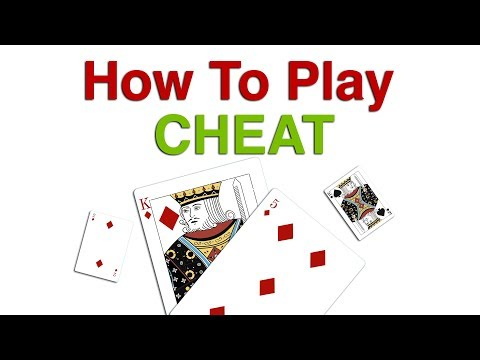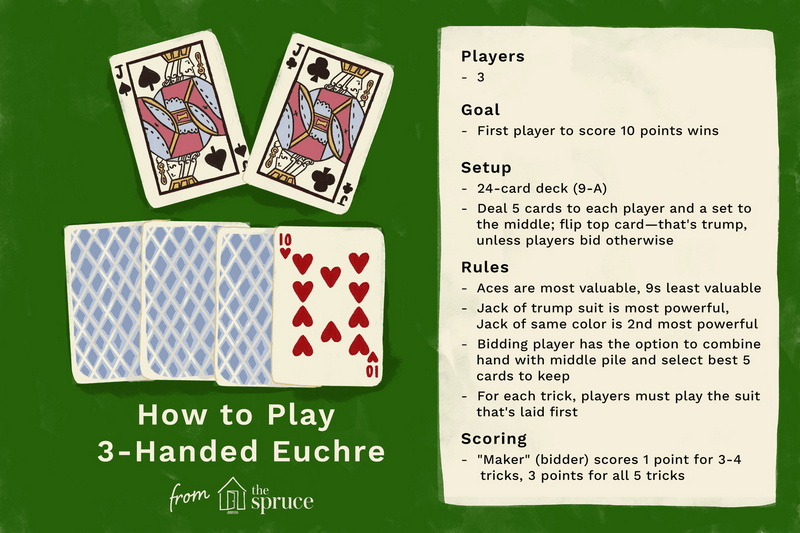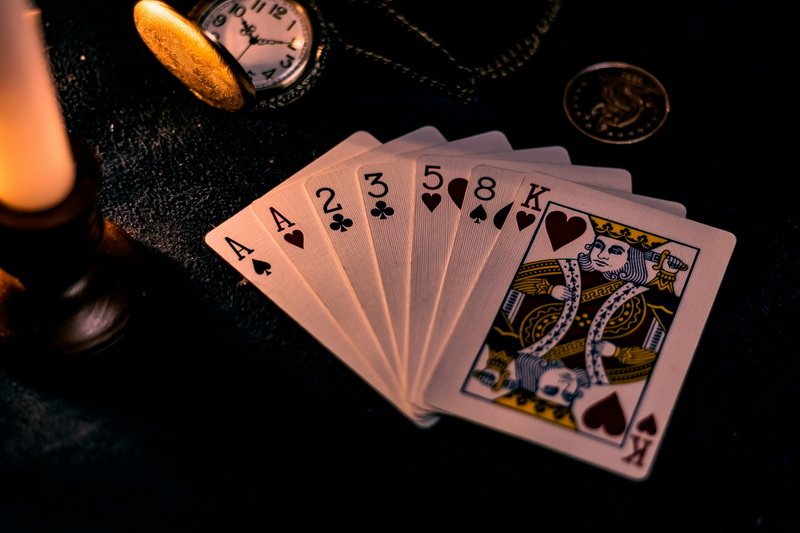Content Menu
● Introduction
● The Basics of Cheat
>> Objective
>> Number of Players
>> Setup
● Gameplay
>> Starting the Game
>> Turn Sequence
>> Bluffing and Cheating
>> Calling "Cheat"
● Advanced Strategies
>> Card Counting
>> Monopolies
>> Timing Your Calls
>> Managing Your Hand
● Variations and House Rules
>> Play Without Limits
>> Directional Play
>> Cheating on Card Count
>> Joker Inclusion
>> Randomized Cheat
● Tips for Success
● Conclusion
● Frequently Asked Questions
>> 1. How many cards should be dealt to each player in Cheat?
>> 2. Can you pass your turn in Cheat?
>> 3. What happens if all players pass in a row?
>> 4. Is Cheat suitable for children?
>> 5. Can Cheat be played as a drinking game?
● Citations:
Introduction
Cheat, also known as Bullsht, Bluff, or I Doubt It, is an exciting card game that combines strategy, deception, and quick thinking. This game is perfect for groups of friends or family looking for an entertaining and competitive pastime. In this comprehensive guide, we'll explore the rules, strategies, and variations of Cheat, providing you with everything you need to become a master of this captivating card game.

The Basics of Cheat
Objective
The primary goal of Cheat is to be the first player to discard all the cards in your hand[1][3]. To achieve this, players must strategically play their cards and bluff their way through the game, all while trying to catch others in their lies.
Number of Players
Cheat can be played with 2 to 10 players, though the game is most enjoyable with 3 to 6 participants[3][4]. For games with four or fewer players, a single 52-card deck is sufficient. However, if you have five or more players, it's recommended to use two decks to ensure everyone has enough cards[5].
Setup
1. Remove the Jokers from the deck (unless playing with a variation that includes them).
2. Shuffle the cards thoroughly.
3. Deal all the cards face-down to the players, distributing them as evenly as possible[1][5].
4. Players may look at their cards and organize their hands.
Gameplay
Starting the Game
The player to the left of the dealer typically begins the game[2][5]. This player must discard one or more cards face-down in the center of the table, announcing the rank and number of cards played. For example, they might say, "Two Aces."
Turn Sequence
1. Play proceeds clockwise around the table.
2. Each subsequent player must discard cards of the next rank in sequence (Ace, 2, 3, ..., Queen, King)[5].
3. Players can discard between one and four cards on their turn[1].
4. Cards are always placed face-down in the center pile.
5. Players must announce the rank and number of cards they are discarding.
Bluffing and Cheating
The core mechanic of Cheat revolves around the ability to lie about the cards being played[3]. Players are not required to tell the truth about the cards they are discarding. This element of deception is what makes the game exciting and challenging.
Calling "Cheat"
If any player suspects that the active player is lying about their discarded cards, they can call "Cheat" (or any agreed-upon phrase like "Bullsh*t" or "I doubt it")[2][3]. When this happens:
1. The cards just played are revealed.
2. If the accuser is correct (the player was lying), the cheater must take all the cards in the discard pile into their hand.
3. If the accuser is wrong (the player was telling the truth), the accuser must take all the cards in the discard pile.
It's important to note that once the next player has begun their turn, it's too late to call "Cheat" on the previous play[5].

Advanced Strategies
Card Counting
Keeping track of which cards have been played is crucial in Cheat. This information can help you determine when someone is likely to be bluffing[1]. For example, if you have two Aces in your hand and someone claims to play three Aces, you know with certainty that they are lying.
Monopolies
Obtaining a monopoly on a certain card rank can be a powerful strategy. If you have all four cards of a particular rank, you can play them confidently without fear of being caught in a lie[1]. Additionally, you can use this knowledge to call out other players who claim to have cards of that rank.
Timing Your Calls
Knowing when to call "Cheat" is a delicate balance. If you call too often, you risk taking on more cards when you're wrong. However, if you never call, other players may become bolder in their lies. Pay attention to players' body language and patterns of play to improve your chances of successful calls[3].
Managing Your Hand
As you approach the end of the game, it becomes increasingly important to plan your discards carefully. Since your final play must be truthful, try to keep a variety of card ranks in your hand to increase your chances of making a legal play on your last turn[1].
Variations and House Rules
Play Without Limits
In this popular variation, players can discard any rank of card on their turn, regardless of the previous play. This allows for more strategic discarding and bluffing opportunities[3].
Directional Play
Some versions of Cheat require players to either play one rank up or one rank down from the previous play. This rule forces more frequent lying and can make the game more challenging[3].
Cheating on Card Count
In some variations, players are allowed to lie about the number of cards they're discarding as well as the rank. This adds an extra layer of complexity to the game[3].
Joker Inclusion
Instead of removing the Jokers, you can include them as wild cards. Players must lie about the Jokers' value when playing them, as saying "One Joker" is not allowed[3].
Randomized Cheat
For an extra twist, mix in a few cards from a second deck. This creates uncertainty about how many of each card are in play, making it harder to catch bluffs with certainty[3].
Tips for Success
1. Observe your opponents: Pay attention to their reactions and patterns of play. This can give you clues about when they might be bluffing.
2. Mix up your strategy: Don't be too predictable in your plays. Alternate between telling the truth and bluffing to keep your opponents guessing.
3. Use misdirection: Sometimes, acting suspiciously when you're actually telling the truth can bait opponents into making false accusations.
4. Manage your hand size: Try to keep your hand size relatively small. The more cards you have, the harder it is to get rid of them all.
5. Stay calm: Maintain a poker face whether you're telling the truth or lying. Showing nervousness can give away your bluffs.
Conclusion
Cheat is a thrilling card game that combines elements of strategy, psychology, and luck. Its simple rules belie a depth of gameplay that can provide hours of entertainment for players of all ages. Whether you're a seasoned card shark or new to the world of bluffing games, Cheat offers a unique and engaging experience that will keep you coming back for more.
By mastering the rules, honing your bluffing skills, and developing a keen eye for catching others in their lies, you'll be well on your way to becoming a Cheat champion. Remember, the key to success lies not just in your ability to deceive, but also in your skill at reading your opponents and making calculated risks.
So gather your friends, shuffle the deck, and get ready for an exciting game of Cheat. Who knows? You might just discover your hidden talent for bluffing and emerge victorious!

Frequently Asked Questions
1. How many cards should be dealt to each player in Cheat?
The cards should be dealt as evenly as possible among all players. In a game with a single 52-card deck, each player will receive between 10 and 13 cards, depending on the number of players. It's okay if some players end up with one more or one less card than others[1][5].
2. Can you pass your turn in Cheat?
In the standard rules, players are not allowed to pass their turn. However, some variations of the game do allow passing, especially if a player doesn't have any cards of the required rank and doesn't want to bluff[5].
3. What happens if all players pass in a row?
In variations that allow passing, if all players pass consecutively, the discard pile is typically removed from the game, and the last player to pass starts a new round with any rank they choose[5].
4. Is Cheat suitable for children?
Yes, Cheat can be a great game for children, as it helps develop skills in strategic thinking, memory, and social interaction. However, parents may want to use an alternative name for the game, such as "I Doubt It" or "Bluff," to avoid using potentially inappropriate language.
5. Can Cheat be played as a drinking game?
While the standard version of Cheat is not a drinking game, there are adult variations that incorporate drinking rules. In these versions, players typically have to drink if they are caught cheating or if they falsely accuse someone of cheating[3]. However, it's important to play responsibly and in moderation if alcohol is involved.
Citations:
[1] https://www.reddit.com/r/cardgames/comments/rfavz1/the_best_cheat_bullsht_rules/
[2] https://www.youtube.com/watch?v=AC-JWgeZbv4
[3] https://hobbylark.com/card-games/How-to-Play-the-Card-Game-Cheat
[4] https://www.adda52.com/cheat-card-game
[5] https://en.wikipedia.org/wiki/Cheat_(game)
[6] https://www.jocu.cards/jocu-game-night-003-how-to-play-cheat
[7] https://www.youtube.com/watch?v=H1-UG9SuQjI
































